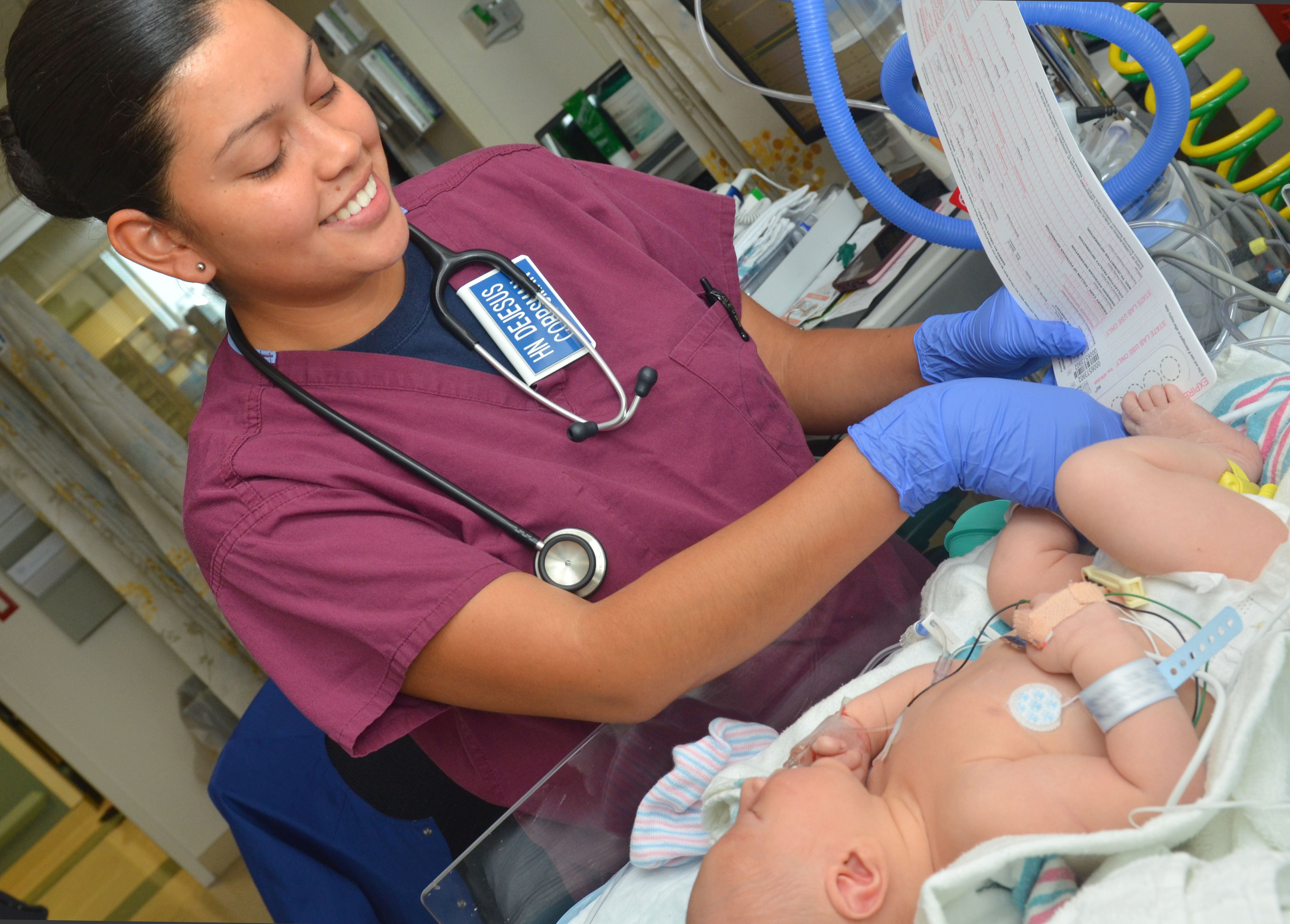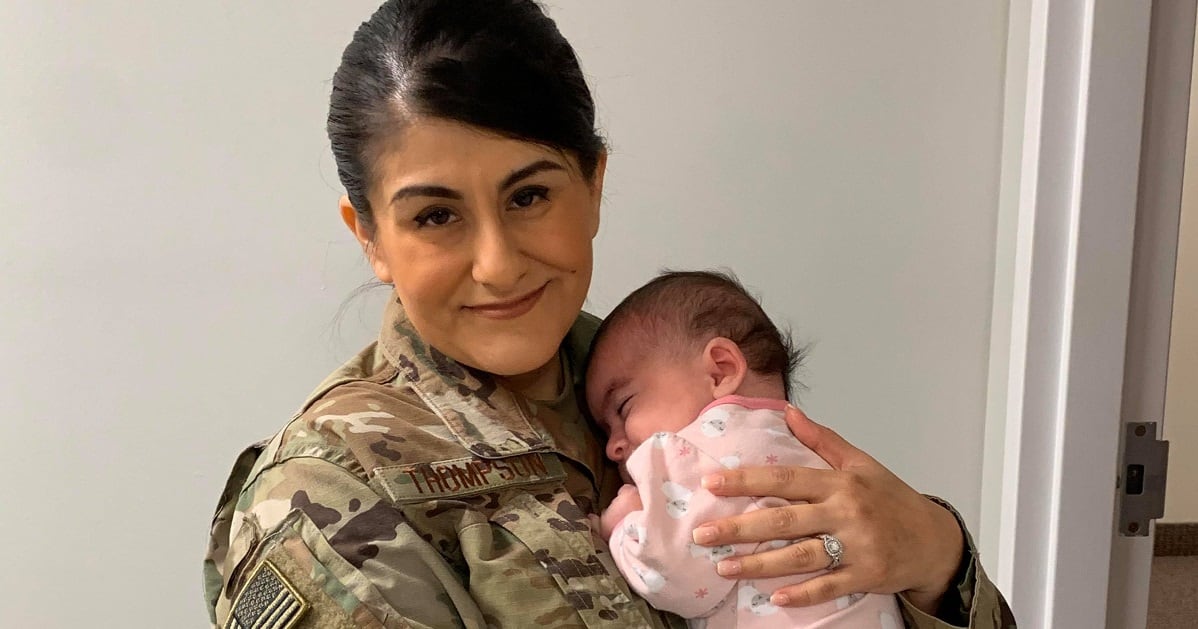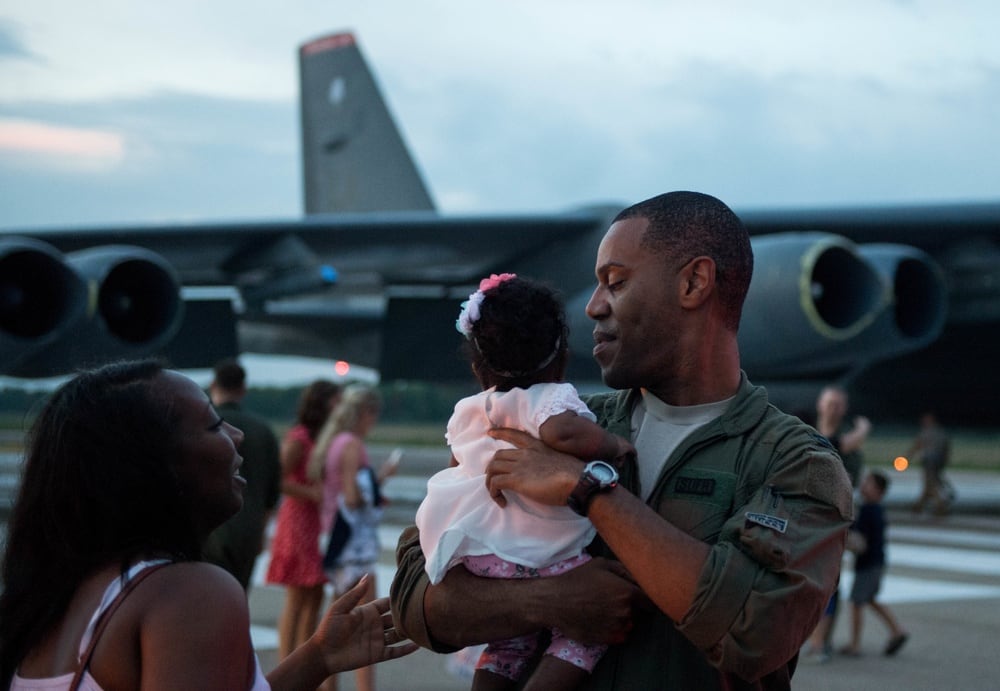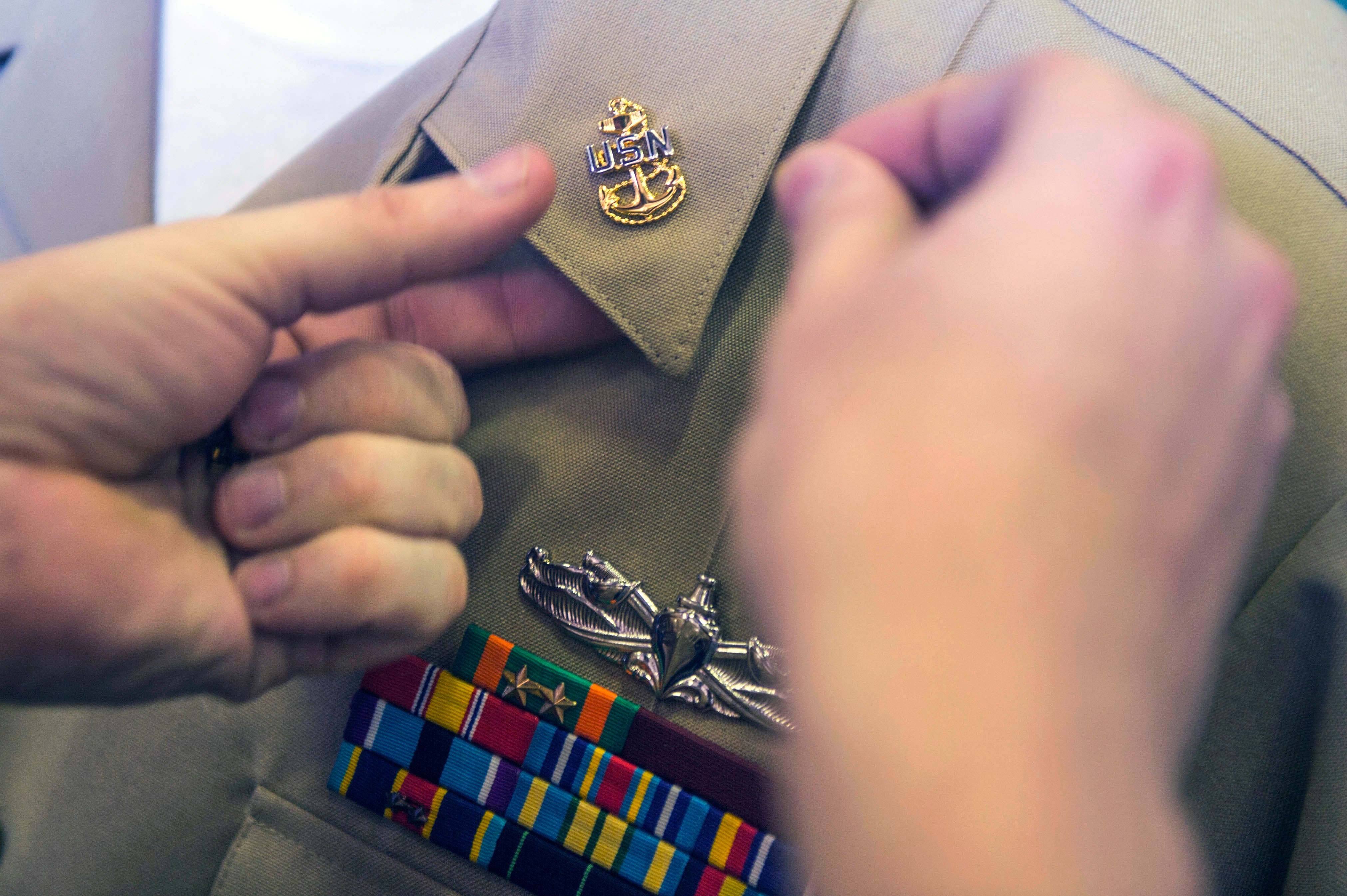The Air Force said Monday it will let airmen, not commanders, decide who in their household will serve as the primary and secondary caregivers for a newborn baby or recently adopted child.
Some airmen have been frustrated by bosses who won’t allow them to opt into or out of becoming primary caregiver — sometimes when traditional gender roles don’t apply — depending on which setup they prefer.
“Service members are responsible for determining who the primary caregiver/secondary caregiver is and must then submit appropriate leave [requests] to their commander,” Air Force personnel chief Lt. Gen. Brian Kelly wrote in a letter to the service.
“Commanders then balance mission requirements with leave policy and guidelines and exercise appropriate discretion when approving or disapproving leave for a qualifying birth event or adoption,” he added.
RELATED

The “Air Force amn/nco/snco” Facebook page posted the message on Wednesday. Service spokesperson Laurel Tingley confirmed its authenticity.
Primary parents who serve in the Air Force currently receive six weeks of leave to care for their new child; secondary parents get three weeks. Maternity convalescent leave lasts six weeks as well.
Still, the distinction between primary and secondary caregivers won’t last long. The 2022 National Defense Authorization Act ditches those terms to instead allow any qualifying service member to receive 12 weeks of leave after newly giving birth, adopting or fostering.
“We will provide updated guidance implementing the new law upon receipt of official [Office of the Secretary of Defense] policy, which we anticipate later this year,” Kelly wrote.
In January, one airman’s plight garnered attention when his unit commander refused to honor his request to be his newborn’s primary caregiver because the airman himself did not give birth. The commander also wanted medical information to prove the airman’s need to oversee the baby’s welfare, Task and Purpose reported Feb. 11.
RELATED

The Air Force instruction is less prescriptive than the commander was trying to enforce, the unnamed airman argued.
“My wife and I chose not to give him any specifics into her medical status,” he wrote in a Nov. 1, 2021, complaint. “I did inform my commander that the information he was requesting was between myself, my spouse and her doctor. I also informed him that I did have a qualifying birth event due to the birth of my son.”
Maj. Gen. Joel Jackson, head of the Air Force District of Washington, overrode the rejection and granted the airman 42 days of parental leave in a Jan. 26 memo. But the same letter noted that because the airman’s commander does not have his own formal policy to decide who will become primary caregiver, Jackson could not rescind a policy that doesn’t exist.
Rep. Jackie Speier, D-Calif., who has championed parental leave as chair of the House Armed Services personnel subcommittee, asked the Air Force to clarify the matter.
“I find it appalling that a commander would wrongfully refuse to allow a service member their choice of caregiver status merely due to an assumed gender norm that a male service member would not be the primary caregiver,” she wrote to Kelly on Feb. 16.
Kelly wrote that his memo aims to “ensure leadership at all levels of the Air Force are aware of the spirit and intent of this policy and are implementing it correctly.”
“My belief is this was a one-time unfortunate incident that we should not see again going forward, particularly as we implement your new legislation,” he wrote to Speier on Tuesday. The congresswoman’s office provided their correspondence to Air Force Times.
The other armed forces have similar wording that lets troops pick a main caregiver at their discretion, though the Navy is the strictest.
By default, a primary caregiver is the person who physically gives birth and is not a military member, according to Navy guidance. For couples who both serve in the armed forces, the person in the “least operational position” is the default for primary responsibility.
“The commanding officer of the member has the authority to designate [primary caregiver] status on a case-by-case basis when it can be demonstrated that the default … is unavailable to administer the necessary care to the child,” the Navy says.
Army and Marine Corps regulations are more open-ended and flexible.
“We are hopeful once the new provision goes into effect this December, this issue will be resolved,” a Speier aide said.
Rachel Cohen is the editor of Air Force Times. She joined the publication as its senior reporter in March 2021. Her work has appeared in the Washington Post, the Frederick News-Post (Md.), Air and Space Forces Magazine, Inside Defense, Inside Health Policy and elsewhere.










